
Since its independence, Armenia has maintained a policy of trying to have positive and friendly relations with Iran, Russia, and the West, including the United States and the European Union. It has full membership status in a number of international organizations, such as the Council of Europe and the Eurasian Economic Union, and observer status, etc. in some others. However, the dispute over the Armenian genocide of 1915 and the ongoing Nagorno-Karabakh conflict have created tense relations with two of its immediate neighbors, Azerbaijan and Turkey.

The Holy See, also called the See of Rome, Petrine See or Apostolic See, is the jurisdiction of the pope in his role as the Bishop of Rome. It includes the apostolic episcopal see of the Diocese of Rome, which has ecclesiastical jurisdiction over the worldwide Catholic Church and sovereignty or governance over the city-state known as the Vatican City. As the supreme body of government of the Catholic Church, the Holy See holds the status of a sovereign juridical entity under international law.
India, officially the Republic of India, has full diplomatic relations with 201 states, including Palestine, the Holy See, and Niue. The Ministry of External Affairs (MEA) is the government agency responsible for the conduct of foreign relations of India. With the world's third largest military expenditure, second largest armed force, fifth largest economy by GDP nominal rates and third largest economy in terms of purchasing power parity, India is a prominent regional power and a rising superpower.
The Foreign Relations of the Philippines are administered by the President of the Philippines and the Department of Foreign Affairs. Philippine international affairs are influenced by ties to its Southeast Asian neighbors, China, the United States, and the Middle East.
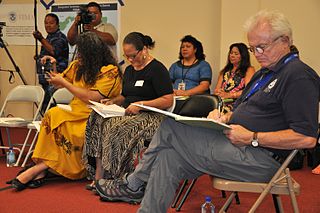
Public relations (PR) is the practice of managing and disseminating information from an individual or an organization to the public in order to influence their perception. Public relations and publicity differ in that PR is controlled internally, whereas publicity is not controlled and contributed by external parties. Public relations may include an organization or individual gaining exposure to their audiences using topics of public interest and news items that do not require direct payment. The exposure is mostly media-based, and this differentiates it from advertising as a form of marketing communications. Public relations aims to create or obtain coverage for clients for free, also known as earned media, rather than paying for marketing or advertising also known as paid media. But in the early 21st century, advertising is also a part of broader PR activities.
A relational database (RDB) is a database based on the relational model of data, as proposed by E. F. Codd in 1970. A database management system used to maintain relational databases is a relational database management system (RDBMS). Many relational database systems are equipped with the option of using SQL for querying and updating the database.
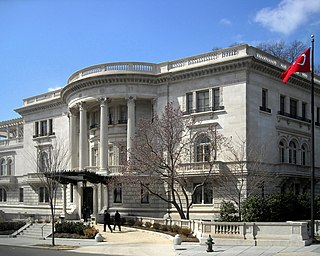
Physically bridging Europe and Asia and being above Africa, Turkey is a secular country that has historically pursued a Western-oriented foreign policy. To this end, Turkey uses its global diplomatic network—the third most extensive—of 252 diplomatic and consular missions.

South West Africa, renamed to Namibia from 12 June 1968, was an occupied part of the Union of South Africa and later the Republic of South Africa from 1915 to 1990, after which it became modern-day Namibia. It bordered Angola, Botswana, South Africa, and Zambia. During its administration, South Africa applied its own apartheid system in the territory of South West Africa.

The Cree are a North American Indigenous people. They live primarily in Canada, where they form one of the country's largest First Nations. More than 350,000 Canadians are Cree or have Cree ancestry. The major proportion of Cree in Canada live north and west of Lake Superior, in Ontario, Manitoba, Saskatchewan, Alberta, and the Northwest Territories. About 27,000 live in Quebec.

Foreign relations of Israel refers to diplomatic and trade relations between Israel and other countries around the world. Israel has diplomatic ties with 165 of the other 192 UN member states as of 12 December 2020. Israel is a member of the United Nations (UN) and a number of other international organisations. Israel maintains full diplomatic relations with two of its Arab neighbours, Egypt and Jordan, after signing peace treaties in 1979 and 1994 respectively. In 2020, Israel signed agreements establishing diplomatic relations with three Arab League countries, Bahrain, the United Arab Emirates, and Morocco. As of 2021, Israel had formal diplomatic relations with 168 other countries, while twenty-eight UN member states have either never established, or have broken off diplomatic relations with Israel.

International relations (IR) are the interactions among sovereign states. The scientific study of those interactions is also referred to as international studies, international politics, or international affairs. In a broader sense, the study of IR, in addition to multilateral relations, concerns all activities among states—such as war, diplomacy, trade, and foreign policy—as well as relations with and among other international actors, such as intergovernmental organizations (IGOs), international nongovernmental organizations (INGOs), international legal bodies, and multinational corporations (MNCs). There are several schools of thought within IR, of which the most prominent are realism, liberalism, and constructivism.

The Council on Foreign Relations (CFR) is an American think tank specializing in U.S. foreign policy and international relations. Founded in 1921, it is an independent and nonpartisan 501(c)(3) nonprofit organization. CFR is based in New York City, with an additional office in Washington, D.C. Its membership has included senior politicians, secretaries of state, CIA directors, bankers, lawyers, professors, corporate directors, CEOs, and prominent media figures.
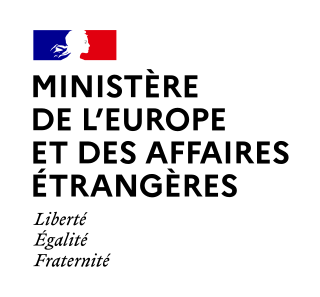
The Ministry for Europe and Foreign Affairs is the ministry of the Government of France that handles France's foreign relations. Since 1855, its headquarters have been located at 37 Quai d'Orsay, close to the National Assembly. The term Quai d'Orsay is often used as a metonym for the ministry. Its cabinet minister, the Minister of Europe and Foreign Affairs is responsible for the foreign relations of France. The current officeholder, Stéphane Séjourné, was appointed in 2024.
Industrial relations or employment relations is the multidisciplinary academic field that studies the employment relationship; that is, the complex interrelations between employers and employees, labor/trade unions, employer organizations, and the state.
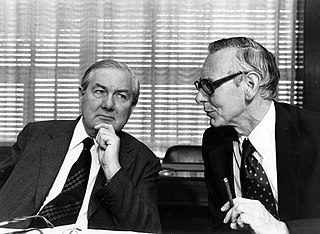
In many countries, the ministry of foreign affairs is the highest government department exclusively or primarily responsible for the state's foreign policy and relations, diplomacy, bilateral, and multilateral relations affairs as well as for providing support for a country's citizens who are abroad. The entity is usually headed by a foreign minister or minister of foreign affairs. The foreign minister typically reports to the head of government.

The United States Senate Committee on Foreign Relations is a standing committee of the U.S. Senate charged with leading foreign-policy legislation and debate in the Senate. It is generally responsible for authorizing and overseeing foreign aid programs; arms sales and training for national allies; and holding confirmation hearings for high-level positions in the Department of State. Its sister committee in the House of Representatives is the Committee on Foreign Affairs.
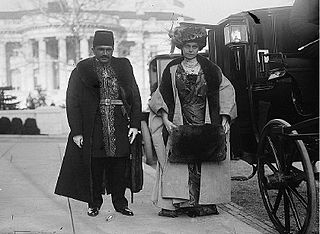
A chargé d'affaires, plural chargés d'affaires, often shortened to chargé (French) and sometimes in colloquial English to charge-D, is a diplomat who serves as an embassy's chief of mission in the absence of the ambassador. The term is French for "charged with business", meaning they are responsible for the duties of an ambassador. Chargé is masculine in gender; the feminine form is chargée d'affaires.
A sovereign state is a state that has the highest authority over a territory.

The United States has formal diplomatic relations with most nations. This includes all United Nations members and observer states other than Bhutan, Iran, North Korea and Syria, and the UN observer State of Palestine, the last of which the U.S. does not recognize. Additionally, the U.S. has diplomatic relations with Kosovo and the European Union.













